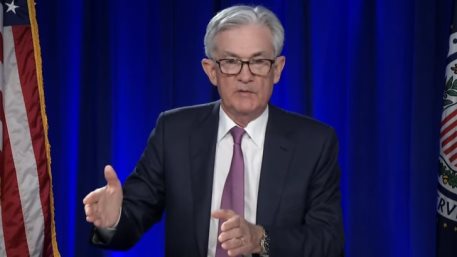
This upcoming week promises to be eventful for global markets, with several crucial economic data releases and high-profile meetings. Investors will be closely watching inflation data from the U.S., Eurozone, and Australia, consumer confidence figures from Germany and the U.S., and the outcomes of the G20 meetings. These events could provide valuable insight into the global economic outlook and policy directions in the coming months. Below, we break down the key events to keep on your radar and what they could mean for the markets.
1. U.S. Personal Consumption Expenditures (PCE) Inflation – Friday
One of the most anticipated data points this week is the release of the U.S. Personal Consumption Expenditures (PCE) inflation data on Friday. Often referred to as the Federal Reserve’s favorite inflation gauge, this release is crucial for assessing the pace of inflationary pressures in the U.S. economy.
The market is expecting a monthly increase of 0.3% in the PCE price index, which would reflect persistent inflationary trends in the economy. This data could significantly impact expectations surrounding the Federal Reserve’s future interest rate decisions. If inflation continues to trend higher than expected, it may prompt the Fed to maintain its hawkish stance and keep interest rates elevated for longer. This could weigh on market sentiment and lead to volatility in U.S. equity and bond markets, particularly in rate-sensitive sectors.
2. U.S. Consumer Confidence – Tuesday
On Tuesday, the U.S. consumer confidence data will be released, providing insight into how American consumers are feeling about the current state of the economy. Consumer confidence plays a critical role in economic growth, as higher confidence levels often correlate with increased consumer spending.
If consumer confidence declines, it could indicate that households are becoming more cautious, especially with rising inflation and higher borrowing costs weighing on budgets. Conversely, an improvement in confidence could signal resilience in the U.S. economy, potentially boosting market sentiment.
3. Eurozone Inflation – Friday
Turning to Europe, the Eurozone inflation data is scheduled for release on Friday. As inflation continues to remain elevated in the region, investors will be keen to see whether the European Central Bank’s (ECB) rate hikes are having the desired effect on curbing price pressures.
If inflation in the Eurozone surprises to the upside, it could fuel further speculation that the ECB will need to maintain its current monetary tightening cycle for an extended period. A higher-than-expected inflation reading could also weigh on the euro, as higher interest rates may be required to cool inflation, potentially stifling economic growth.
4. Germany Consumer Confidence – Wednesday
On Wednesday, Germany will release its consumer confidence data, which will shed light on the sentiment of the largest economy in Europe. The confidence data will help gauge whether German households are feeling the pinch from higher inflation, increased energy costs, and geopolitical uncertainty.
If consumer confidence in Germany dips further, it could signal that economic activity is likely to slow in the months ahead, especially given the rising cost of living. This could have broader implications for the Eurozone as a whole, with weaker consumer confidence potentially translating into subdued spending and slower growth.
5. Australian Annual Inflation – Wednesday
Also on Wednesday, Australia’s annual inflation rate will be in focus, with consensus expectations pointing to a 2.6% increase year-on-year. As the Reserve Bank of Australia (RBA) continues to grapple with rising price pressures, this inflation report could influence the central bank’s next moves on monetary policy.
A higher-than-expected inflation print could push the RBA to continue raising interest rates, which might weigh on Australian equities and the Aussie dollar. Conversely, if inflation cools, it could provide relief to consumers and businesses alike, giving the central bank some room to pause its rate hikes.
6. G20 Meetings – Wednesday and Thursday
On Wednesday and Thursday, G20 meetings will take place in Cape Town, bringing together finance ministers and central bankers from the world’s largest economies. These meetings will be closely watched for any signals about global economic coordination, trade policies, and discussions on tackling inflation.
With inflation being a key topic globally, the G20 meetings could provide insights into how nations are working together to address economic challenges. Additionally, investors will be keen to hear any updates on trade discussions, which could impact global markets, particularly in sectors like commodities, manufacturing, and technology.
7. DOGE Requirement for Federal Workers
Another unique event this week is the follow-through from this weekend’s DOGE (Dogecoin) requirement for federal workers in the U.S. This policy, which has generated significant buzz, may impact certain sectors and broader market sentiment. Investors are watching to see how this unusual development will influence crypto markets and its implications for government operations.
Conclusion
This week is packed with high-impact events that could shape market direction, including inflation data from the U.S., Eurozone, and Australia, as well as consumer confidence updates from Germany and the U.S. The G20 meetings will also provide important insights into global economic coordination, and the new DOGE requirement for federal workers adds a unique twist to the market narrative. Investors should brace for potential volatility as these key releases and events unfold, with inflation remaining the primary focus for policymakers and markets alike.




















